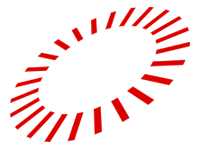The Dark Net: Inside the Digital Underworld
Ever been in the dark and afraid to switch on the light because of what you might see? We live in a world of the internet where all most of us ever see is the light and enlightenment; but there’s a dark side to the internet – a very dark side indeed. And it’s growing. And growing. What should we do? And what can we do?
“The Dark Net. It sounds quite terrifying – and, having written a book on the subject, I can tell you that it often is. It’s shorthand to describe the hidden and encrypted part of the internet beyond the reach of normal browsers, accessible using an anonymous browser called Tor. It’s protected by a clever traffic encryption system which makes it very difficult to locate the servers which host sites – called Tor Hidden Services – and the IP addresses of the people the visit them.
Even through Tor was originally a US government research project created to help protect the anonymity of its agents, it soon became an open-source tool for dissidents and journalists. Crooks and criminals were also early adopters.”
Jamie Bartlett, 4 October 2014
As we begin our ‘If I see further….’ series of talks, discussions and debates, Jamie Bartlett, author of the recent book on the dark net ‘The Dark Net: Inside the Digital Underworld’ examines and gives evidence of the most recent human technology depravity that is The Dark Net.
Join us to see further, to stretch your thinking, to extend your network and to ask very difficult questions – perhaps of yourselves – in the anonymity and safe-to-consider-very-difficult-questions environment that is the Real Time Club dinner on Monday 20th October 2014.
Jamie Bartlett is the Director of the Centre for the Analysis of Social Media at the think tank Demos, where he specialises in online social movements and the impact of technology on society.
His recent book ‘The Dark Net: Inside the Digital Underworld’ was published in August 2014.
‘In his author’s note, Bartlett admits “readers may question the wisdom of writing about this subject at all, and express concern at the information”. But he shines an invaluable light on a world that remains determinedly opaque.’
The Independent, 4 October 2014
